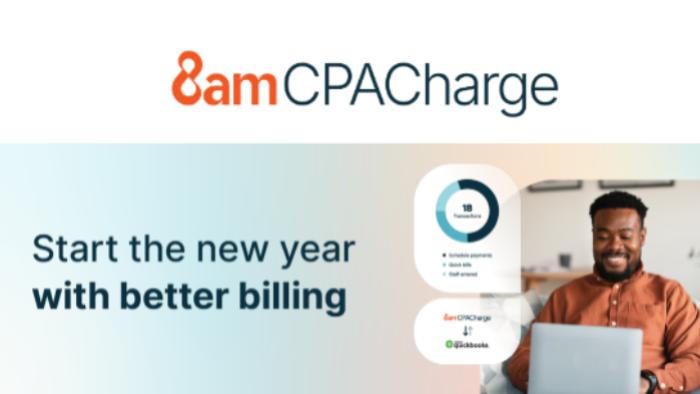How to Write a Business Plan

As we head into the final month of the year, many individuals may have a New Year’s resolution to start a small business. One of the most important assets this business will need is a business plan.
What is a business plan? A good business plan guides you through each stage of starting and managing your business. You are using the business plan to examine each stage of its business goals and plan for how it may reach these goals and milestones. As a result, the business plan should be able to evaluate the feasibility of the business and align its owner toward a common vision for the company. A business plan should also be able to attract investors that may wish to fund your company.
Entrepreneurs may choose to write a business plan in one of two formats:
- Traditional. These plans are often quite detailed and are written three to five years out into the future. A traditional business plan may be up to 30 to 40 pages in length.
- Lean. This is a much more condensed version of a traditional business plan. A lean startup plan is usually no more than a page long and easily explains your business through a quick summary.
Let’s explore what sections to cover when drafting a traditional or lean business plan.
Traditional Business Plan
The following sections must be covered in a traditional business plan:
Executive Summary
An executive summary acts as a summary of the business. It details what the business does, the industry it is in, when you plan to start doing business, and its location. You should be able to share in an executive summary why customers will choose your business over a competitor and how the company will earn its revenue.
Business Description, Concept, and Strategy
Here you may go into further detail about your products and services. Highlight what your offerings do and what makes them unique and distinctive. Share where the idea for your business came from and where you are at in the development stages. This section may also include a mention about the overall goals for the business and its timeline to reach said goals.
Industry Analysis
An industry analysis analyzes your competition and their offerings. This includes direct and indirect competitors of your business.
Market Analysis
A market analysis examines individuals that make up your target audience. Study your ideal customers and their demographic profiles. Determine a plan for how you will attract, capture, engage with, and retain this audience.
Organization and Management
Who leads your company? This section shares the biographies and responsibilities of core leadership and staff.
Financial Projections
Every business plan will have a section that focuses on the financial health of the business. Financial projections examine the company’s cash flow. This section usually includes charts and tables to further detail to interested investors the company’s profits and losses. Other financial projections that may be included in this section are the company’s sales forecast, expenses budget, 12-month income statement (if you have one), balance sheet, and break-even analysis.
Financing Request
Seeking funding from investors? This is the section to share your financing request. Outline how much capital your startup needs and plans for how you will spend this money.
Appendix
If you have any extra documents that may not fit into the previously mentioned business plan sections, like letters of incorporation or trademark registrations, store this valuable information into the appendix.
Lean Startup Plan
A lean startup plan digs into four core elements for the startup. Lean startup plans are generally only a page long, so don’t be surprised if you find this section is quicker to read through than its traditional counterpart.
Value Proposition
This is a clear statement that sums up the value that your small business can bring to its respective market.
Key Partnerships, Resources, and Activities
This section details the partners working with your business. It also shares more information about key strategies for gaining a competitive advantage and the resources the business may use to create value for its target audience.
Customer Segments, Channels, and Relationships
Take a deep dive into your audience. Share who your customers are, your plans to reach them, and strategies for building a lasting relationship together.
Revenue Streams
This is the lean startup plan’s version of a traditional business plan’s financial projections. Detail how the business earns money. List each revenue stream associated with the business. Explain how these streams help generate revenue for the company.
Traditional vs. Lean: Which is Best for My Business?
The good news about drafting a business plan, whether it is traditional or a lean format, is that you may always go back and edit this plan. If you start off lean and start gathering more details about your business as it grows, return to your plan, and make the edits accordingly. If necessary, consult with financial professionals to ensure you are on track to meet your goals.
Revisit your business plan regularly to ensure you are on the right track in hitting your goals and to establish emerging, new goals for the business as time progresses.
Deborah Sweeney is the CEO of MyCorporation.com. MyCorporation is a leader in online legal filing services for entrepreneurs and businesses, providing start-up bundles that include corporation and LLC formation, registered agent, DBA, and trademark & copyright filing services. MyCorporation does all the work, making the business formation and maintenance quick and painless, so business owners can focus on what they do best. Follow her on Twitter @deborahsweeney and @mycorporation.
Share This Article
What's Trending?
Trending topics & tools for the CPA community
How Firms are Rethinking Reasonable Comp (Quick Video)
It’s a short video and makes the value of repeatable, data-backed approach clear (especially compared to spreadsheets, gut checks and one-off calculations).
Learn how 8am CPACharge delivers clarity and confidence for accounting firms.
8am™ CPACharge brings invoices, payments, and reconciliation together in a solution designed to make your day easier from start to finish.
Seniors on Social Security Could Face $460 Monthly Cut to Benefits
Jim Komoroski, RSSA®, is quoted in Newsweek, offering expert insight into the projected monthly cuts to Social Security benefits should Congress fail to act.
Resources
Valuable information provided by our sponsors.
Specialize in Social Security
Looking to enhance your retirement planning expertise? Your solution: pursue the Registered Social Security Analyst®...
CPAdirectory members have access to discounted auto and home insurance
At CPAdirectory, we think it's a good thing to provide our members with access to...
Free CPE Course: ChatGPT for Tax Pros — Limited Offer
CPAdirectory and CCH CPELink are giving you free access to the on-demand course: ChatGPT for...
PE Deals In Accounting: Valuations, Structure, Tradeoffs
In this webinar, you’ll hear from firm leaders and industry experts who will share real-world...
Stand Out as a Trusted Social Security Expert with the RSSA® Designation
Designed for CPAs, the Registered Social Security Analyst® (RSSA®) designation provides advanced training to help...
How Firms are Rethinking Reasonable Comp (Quick Video)
It’s a short video and makes the value of repeatable, data-backed approach clear (especially compared...












